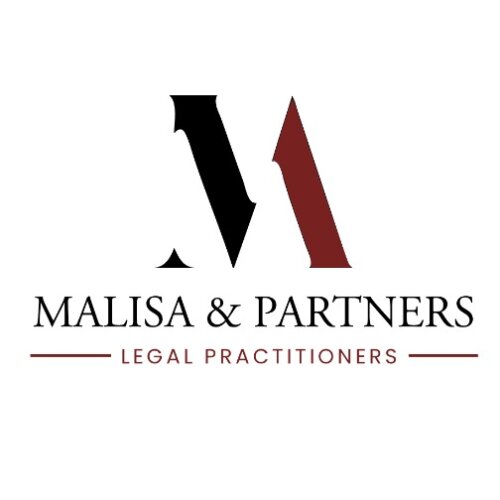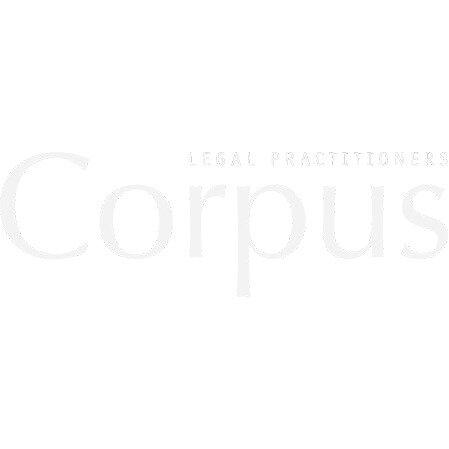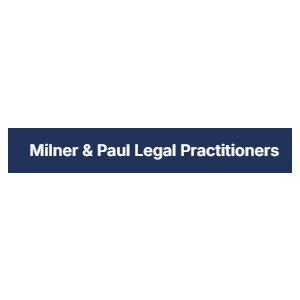Best Landlord & Tenant Lawyers in Zambia
Share your needs with us, get contacted by law firms.
Free. Takes 2 min.
Free Guide to Hiring a Real Estate Lawyer
Or refine your search by selecting a city:
List of the best lawyers in Zambia
About Landlord & Tenant Law in Zambia
Landlord and Tenant Law in Zambia governs the rental relationships between landlords and tenants, ensuring fair practices in residential and commercial leasing. The core legislation includes the Rent Act and various policies aimed at protecting the rights of both landlords and tenants. The law covers issues such as rental agreements, tenant rights and obligations, eviction processes, and dispute resolution. Understanding these laws is crucial for both parties to maintain a harmonious and lawful rental relationship.
Why You May Need a Lawyer
There are several situations where seeking legal advice from a landlord-tenant lawyer might be necessary:
- Lease Disputes: Whether it's about interpreting the terms of the lease or disagreements over the lease duration, a lawyer can provide clarity and mediate disputes.
- Evictions: If a landlord is looking to evict a tenant or if a tenant is facing eviction without proper notice, legal intervention can ensure the process is fair and lawful.
- Rental Arrears: Lawyers can assist in negotiating payment terms or representing clients in cases where there are significant rental arrears.
- Property Damage Claims: In case of disputes regarding property damages and repairs, legal assistance can be crucial in resolving such issues legally.
- Unlawful Rent Increases: Landlords must follow specific regulations when increasing rent, and a lawyer can help ensure that these processes are adhered to correctly.
Local Laws Overview
Several key aspects of local laws are particularly pertinent to landlord and tenant issues in Zambia:
- Rent Control: The Rent Act provides guidelines on how rent should be set and the permissible grounds for increasing rent.
- Tenancy Agreements: It's crucial to have a written agreement that outlines the rights and responsibilities of both parties.
- Eviction Procedures: Evictions must comply with legal procedures, including providing adequate notice to tenants.
- Repairs and Maintenance: Landlords are typically responsible for major repairs, while tenants may have to handle minor maintenance issues.
- Security Deposits: Regulations determine how security deposits should be handled and under what conditions they may be retained by the landlord.
Frequently Asked Questions
What should be included in a tenancy agreement?
A tenancy agreement should include details such as the lease duration, rental amount, payment terms, responsibilities for repairs, and terms of termination. It provides a legal framework for the rental relationship.
Can a landlord increase the rent arbitrarily?
No, the landlord must adhere to the conditions set out in the Rent Act regarding rent increases, including giving the tenant adequate notice and justifying the increase.
What are a tenant’s rights if the property is poorly maintained?
Tenants have the right to request repairs from the landlord if the property is not maintained to the agreed-upon standard. If the landlord fails to act, tenants may seek legal advice.
How much notice must a landlord give for eviction?
The notice period varies depending on the reason for eviction, but it must conform to what is stipulated in the Rent Act, usually allowing the tenant sufficient time to vacate.
Can a tenant withhold rent if repairs are not made?
While it may be tempting, withholding rent is generally not advisable unless legally sanctioned, as it can lead to eviction. Seek legal guidance to address repair issues.
What happens if a tenant breaks the lease early?
The tenant may be liable for the remainder of the rent or any costs incurred by the landlord due to early termination. Parties should refer to the lease terms for such occurrences.
Who is responsible for utility bills?
Responsibility for utility bills should be clearly outlined in the tenancy agreement. Typically, tenants pay for utilities, but exceptions may be specified.
How can disputes between landlords and tenants be resolved?
Disputes can often be resolved through mediation or, if necessary, through legal proceedings. Consulting a lawyer can facilitate a more efficient resolution.
Are oral tenancy agreements valid?
While oral agreements can be valid, they are difficult to enforce. It is recommended to have all agreements in writing to avoid disputes and ensure clarity.
What is the process for retrieving a security deposit?
Upon lease termination, tenants may request the return of their security deposit, provided there are no damages or unpaid dues. The landlord must comply with any process outlined in the tenancy agreement.
Additional Resources
Here are some organizations and resources that can be helpful for those navigating landlord and tenant issues in Zambia:
- The Ministry of Local Government and Housing: Offers insights and guidance on housing regulations.
- The Rent Control Board: Can assist with disputes related to rent and lease agreements.
- Zambia Institute of Planners (ZIP): Provides information on urban housing policies and practices.
- Legal Aid Board: Offers legal assistance to those who meet certain criteria.
Next Steps
If you need legal assistance in dealing with landlord and tenant issues in Zambia, consider the following steps:
- Consult a Lawyer: Find a lawyer who specializes in landlord-tenant law to help you navigate complex legal issues.
- Research and Document: Gather and document all relevant information and agreements pertaining to your case, as this will assist your lawyer in providing effective advice.
- Use Mediation Services: Before pursuing legal action, consider mediation as a potential path to reach an amicable solution with minimal conflict.
- Stay Informed: Stay updated on any changes in local laws and seek guidance to ensure compliance with current regulations.
Lawzana helps you find the best lawyers and law firms in Zambia through a curated and pre-screened list of qualified legal professionals. Our platform offers rankings and detailed profiles of attorneys and law firms, allowing you to compare based on practice areas, including Landlord & Tenant, experience, and client feedback.
Each profile includes a description of the firm's areas of practice, client reviews, team members and partners, year of establishment, spoken languages, office locations, contact information, social media presence, and any published articles or resources. Most firms on our platform speak English and are experienced in both local and international legal matters.
Get a quote from top-rated law firms in Zambia — quickly, securely, and without unnecessary hassle.
Disclaimer:
The information provided on this page is for general informational purposes only and does not constitute legal advice. While we strive to ensure the accuracy and relevance of the content, legal information may change over time, and interpretations of the law can vary. You should always consult with a qualified legal professional for advice specific to your situation.
We disclaim all liability for actions taken or not taken based on the content of this page. If you believe any information is incorrect or outdated, please contact us, and we will review and update it where appropriate.
Browse landlord & tenant law firms by city in Zambia
Refine your search by selecting a city.
















